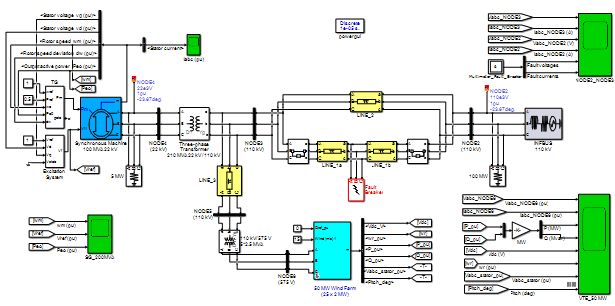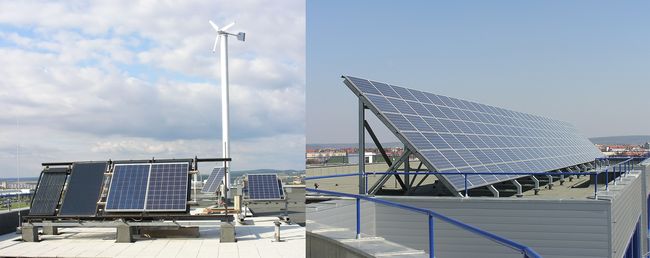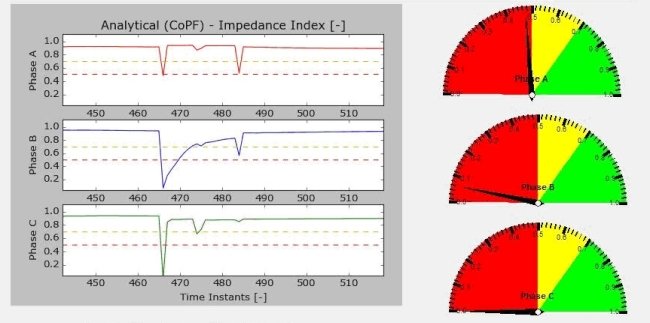Operation and control of energy systems
Current trends in energy: decentralization, decarbonization, and digitization are also reflected in the Department's research activities. The research focuses not only on the operation and control of transmission and distribution systems but also on consumer energy systems. An integral part is the issue of the integration of renewable sources into distribution networks, local networks, and microgrids, as well as their impact on the operation and control of networks. Related issues are dispatch control, regulation, and efficient operation of energy systems.
Areas of research and development activity in the field of operation and control of energy systems:
- Analyses of states and events in transmission and distribution networks and analysis of operating conditions
- modeling and simulation of operational and fault states, and steady and transient events in energy facilities
- investigation of voltage, angular and frequency stability in the electrical system
- detection of non-standard network states
- verification of reliability criteria, reconfiguration conditions, line overloading etc.
- processing of detailed bulk measurements for control optimization and identification of non-standard network behavior

- Control and regulation of power systems and electricity and heat energy supply systems
- development of tools for dispatch control
- operation and control of networks with high penetration of intermittent sources
- use of accumulation for operation, stability, and crisis control power system
- operation and control of Smart Grids and microgrids with RES, Smart Home
- Renewable energy sources and their integration into energy systems, decentralized power generation
- modeling of resources, assessment of their operation, and impact on the network
- control and operation of decentralized generation
- optimal operation of cogeneration units, their deployment, and cooperation with supply energy systems
- long-term measurement and comparison of photovoltaic systems under real conditions within the RES research mini-park

- Economic and energy analyses of the operation of energy equipment and systems
- Reliability and quality of supplied electrical energy
The most important currently carried out projects:
The concept of the Digital Twin (DigiTwin)
The goal is to develop the concept of a so-called digital twin of the transmission system with links to related systems, especially distribution systems. It will be a virtual model of the real system enabling a real-time view of the state of the system, modeling variants, and their impacts. It is the connection of data sources, processes, properties of data sources, and their evaluation in real time. This project is closely related to the bellow mentioned project.
New analytical tools for using data from WAMS
The project is focused on the development of supporting tools for safety assessment or detection of non-standard situations in the transmission system, which should expand the portfolio of analytical functions using synchronous data from WAMS (Wide Area Measurement System). These tools can then be used to carry out detailed analyzes of the causes and effects of non-standard situations. The project is a continuation of the project dealing with the detection of the pre-critical state of power systems based on the phasors measured by the WAMS system, which focused on the assessment of voltage stability and the determination of the distance of the current operating state from the critical state (limit of stability).
